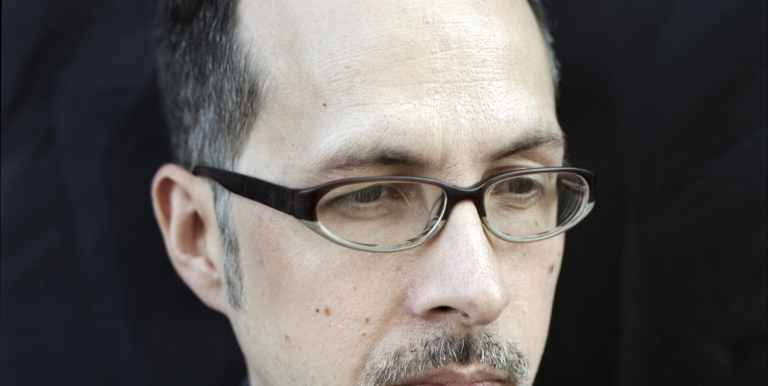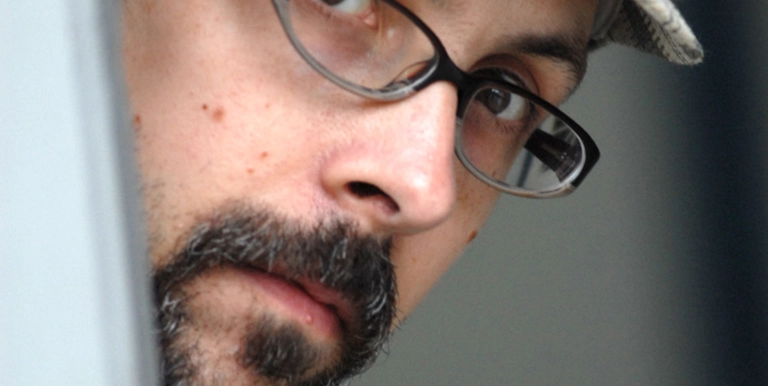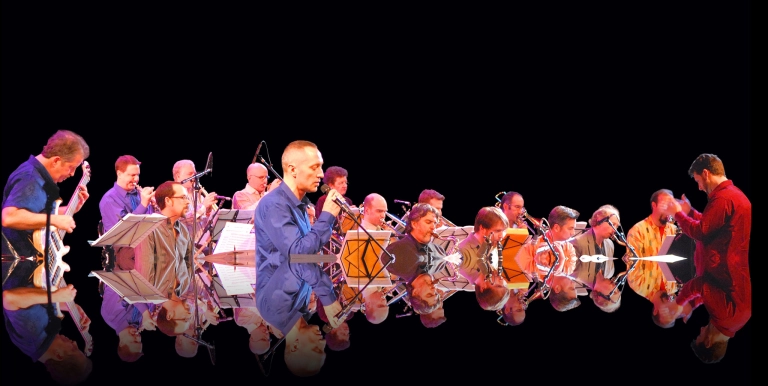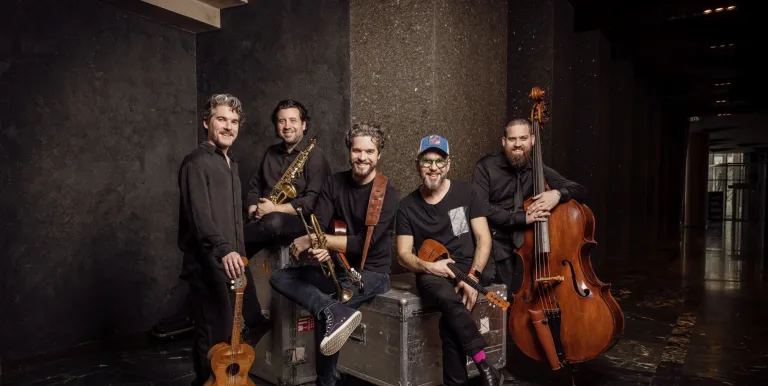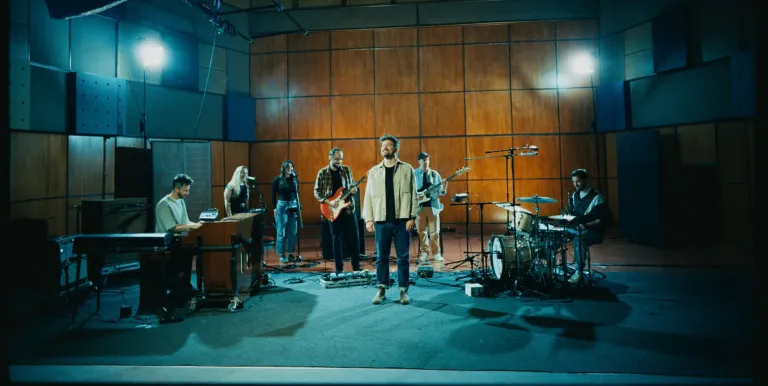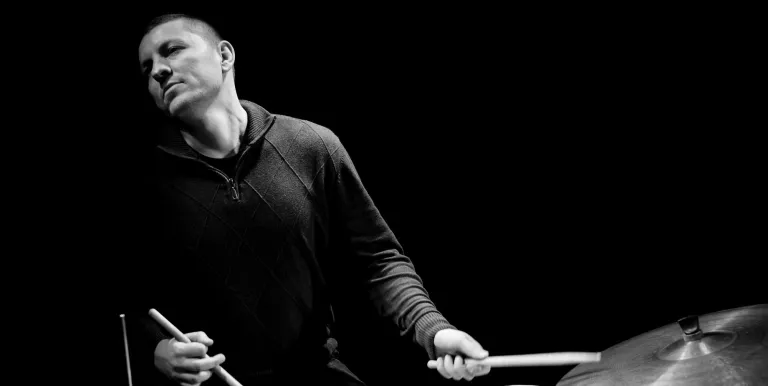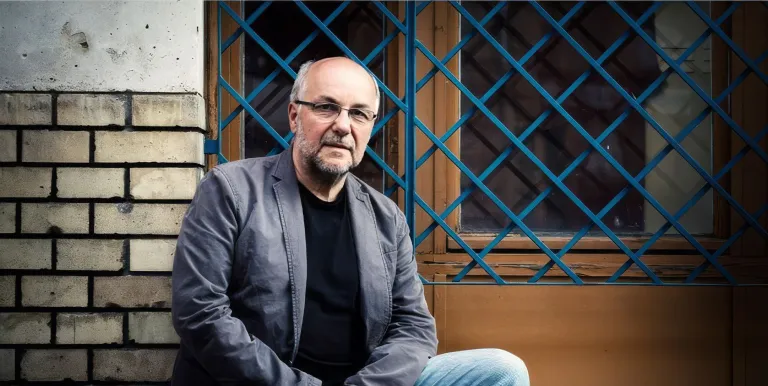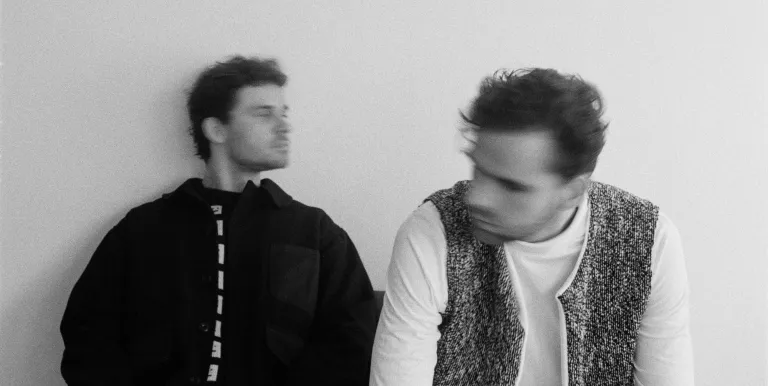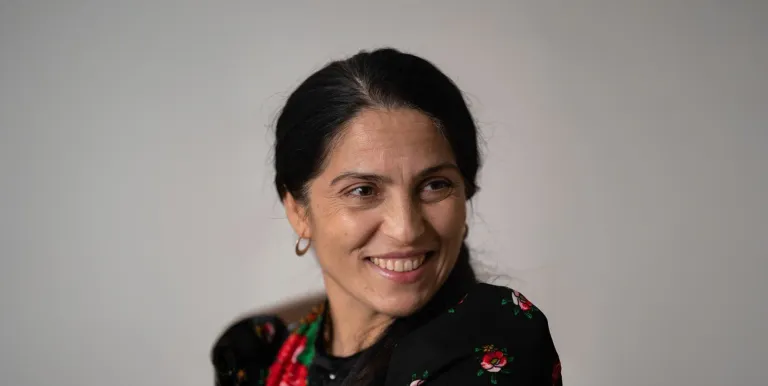In the history of jazz since its very awakening, big bands have always played an important role, starting with Paul Whiteman’s orchestra of the 1920s. The popularity of the big band has seen its peaks and troughs, but through all economic hardships has remained an indispensable formation in the genre to this day. Where would we be without Duke Ellington, Count Basie, Benny Goodman or Glenn Miller, or Bob Brookmeyer at the turn of the millennium? Drummer John Hollenbeck is himself an alumnus of Brookmeyer’s New Art Orchestra, where he mastered the essentials of the large ensemble sound. Being an exceptionally multi-faceted and open-minded musician, he went on to become one of the leading figures on the New York experimental music scene, working for many years with Meredith Monk, and turning up in company as diverse as pianist Fred Hersch, David Krakauer’s Klezmer Madness and Frank London’s band. His own musical ideas began to blossom over the past decade as part of the Claudia Quintet, while his leadership of the John Hollenbeck Large Ensemble marks out new paths for the future. An important characteristic of this almost 20-strong orchestra is that its playing ventures very far from the customary sound of a big band. In addition, it is not a loose collective of ever-changing musicians, but a workshop of permanent creative partners, the core of which includes – besides Hollenbeck – pianist Matt Mitchell (the sixth member of the Claudia Quintet), saxophonist Tony Malaby and double bassist Kermit Driscoll. The bandleader’s large-scale compositions build into tone poems using the tools of minimalism, and – as a further intrinsic ingredient – the voice of Theo Bleckmann, a member of Hollenbeck’s third important group, the Refuge Trio.
Presented by: Palace of Arts
-
We wish to inform you that in the event that Müpa Budapest's underground garage and outdoor car park are operating at full capacity, it is advisable to plan for increased waiting times when you arrive. In order to avoid this, we recommend that you depart for our events in time, so that you you can find the ideal parking spot quickly and smoothly and arrive for our performance in comfort. The Müpa Budapest underground garage gates will be operated by an automatic number plate recognition system. Parking is free of charge for visitors with tickets to any of our paid performances on that given day. The detailed parking policy of Müpa Budapest is available here.

